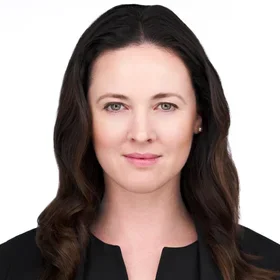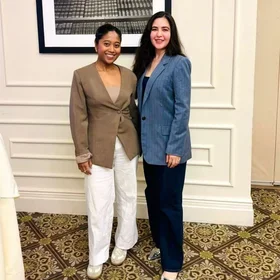Niveditha Girish Hesaraghatta (’25SPS), a recent graduate of the M.S. in Applied Analytics (APAN) program at Columbia University School of Professional Studies, is committed to using analytics to impact the lives of others.
“I’m passionate about leveraging data analytics and enterprise asset management to drive meaningful change in the public sector,” said Niveditha. “Whether it’s enhancing infrastructure, improving transit systems, or optimizing public services, I find fulfillment in creating solutions that make a tangible difference in people’s everyday lives.”
While at Columbia as a full-time student, Niveditha interned with the Port Authority of New York and New Jersey, where she learned how rewarding big data projects can be. For her exceptional contributions to the organization, she was awarded the Gene Fasullo Memorial Scholarship.
Now in a new role as a consultant for Marine Tiger Industries, Niveditha works on creating public sector tools and solutions that will leave a lasting impact. In a recent interview, Niveditha expressed the value of leveraging strategic analytical thinking in the public sector.
What was your experience like in the APAN program?
It was an incredible experience. The program had the perfect mix of technical and management courses, which helped me build both my analytical and problem-solving skills.
Beyond academics, I was actively involved in student organizations. I served as the Corporate Relations Director for the Columbia Consulting Association, where I helped organize networking events and social gatherings for students. One of the highlights was collaborating with the Career Design Lab to host an event with McKinsey & Company and Boston Consulting Group (BCG), which gave students valuable insights into consulting and analytics careers. These experiences allowed me to network with alumni and industry professionals, which was a great way to learn beyond the classroom.
One of the best parts of the program was the diversity of the students. Some came in with over 10 years of work experience, while others were fresh out of undergrad. This mix created a unique learning environment where I got to hear different perspectives and learn from my peers as much as I did from my professors.
Did you have any favorite courses or professors at SPS?
I really enjoyed the Research Design course, primarily because of Professor Scott Spencer, who had a way of making every class engaging and interactive. He would bring real-world examples into discussions, ensuring that every student was involved. Research design as a subject could easily become dry or overly theoretical, but he made sure it wasn’t.
Managing Data with Professor Darshan Desai was another standout course for me. She brought an incredible energy to every class and had a deep understanding of the field. For our final project, we worked on NYC Neighborhood Insight, a project where users could enter a zip code and receive key information about the neighborhood, including housing prices, crime rates, and demographics. It was a hands-on, real-world application of data analysis, which made the learning experience even more rewarding.
You’ve said you’re always looking for new techniques to push the boundaries of what’s possible. What does pushing boundaries mean to you?
To me, pushing boundaries isn’t just about using the latest technology—it’s about making a real difference in the way things work. That’s what excites me about this field, and that’s what keeps me motivated to keep learning, innovating, and finding new ways to drive impact.
At Port Authority, I developed a data validation tool that helped to enhance asset data management. Before this tool, teams spent a lot of time fixing errors in their datasets. By automating the validation process, I was able to save resources and improve data accuracy, which in turn helped optimize asset planning. That’s the kind of impact I want to keep making—finding ways to use data to improve systems that serve the public.
What do you see for the future of applied analytics?
Many people assume that with the rise of AI and automation, analytics roles will eventually be taken over by machines, but I don’t see it that way. I think the role of a data professional is becoming more important than ever.
AI can process massive amounts of data, build models, and even generate insights, but at the end of the day, you still need someone who understands the bigger picture—someone who knows what questions to ask, how to interpret the results, and most importantly, how to turn data into action. AI can give us recommendations, but it can’t replace critical thinking, strategic decision-making, and the human ability to connect the dots across different areas.
I also think the way we communicate data will be just as important as the data itself. As AI automates more processes, the focus will shift to making insights understandable and actionable—which is where data visualization, storytelling, and decision science come in. The best analytics professionals will not just be those who can crunch numbers but those who can translate data into a clear, compelling narrative that drives real change.
About the Program
Columbia University’s Master of Science in Applied Analytics prepares students with the practical data and leadership skills to succeed. The program combines in-depth knowledge of data analytics with the leadership, management, and communication principles and tactics necessary to impact decision-making at all levels within organizations.
The fall 2025 application deadline for the APAN program is June 1. Full-time students study on-campus in New York City, and part-time students may study on-campus or online to offer flexibility for working professionals. Learn more here.


